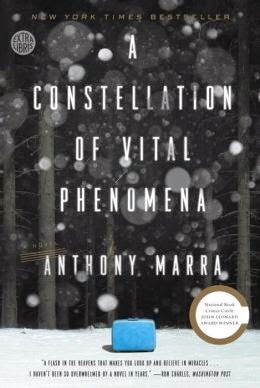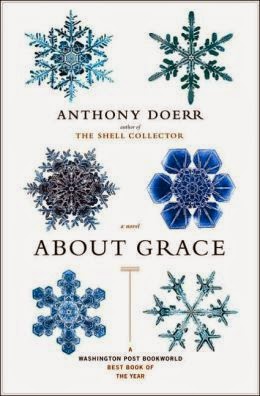Yep, trying to catch up with my blogging. I have been reading a lot lately and the blogging is getting away from me. I will work on being more recent! I love reading in the summer, so I hope to get lots of it done this year!
One of my book groups chose
Grapes of Wrath by John Steinbeck for our May meeting. I had not read
it in many, many years, so it was pretty much like reading a new book for me. It is easy to understand why it is considered a classic, and that it won the Pulitzer Prize. The book was first published in 1939, and has been described as an "epic of the Great Depression".
Grapes of Wrath is about the Dust Bowl migration of the Joad family from Oklahoma who had lost everything there and decided to take off for California, where the good life was promised. Three generations set off in an old truck and as they traveled across the country they repeatedly dealt with harsh conditions, including lack of money, food, shelter, etc. Family members became ill, a young daughter was pregnant, some died. Once the family reached California, conditions did not improve, and were the same, if not worse.
The book tells a heart-breaking story. It was somewhat difficult to read how hard life was in the 1930's for people who ended up losing everything and struggled to survive. And to read of how those who did have resources were either afraid or unwilling to help others.
One reviewer described the book as: "
The Grapes of Wrath summed up its era in the way that
Uncle
Tom’s Cabin summed up the years of slavery before the Civil War."
I liked that comparison. Both are important books to read to understand history.
For June, my other book group read
The Aviator's Wife by Melanie Benjamin. The wife in the
The
Aviator's Wife, a historical fiction, is Anne Morrow Lindberg, wife of Charles Lindberg. Many years ago I had read the autobiographies of Anne Morrow Lindberg, so I was curious to see how this book would compare to those.
The book begins in 1927 with Ms. Morrow traveling to Mexico City over college break to visit her family who had just moved there. While there, she met and became friends with Charles Lindberg, who had just completed his solo trip to Paris. Charles and Anne married after some time and Charles began teaching Anne how to fly and how to be his "crew". Anne began to see that she was expected to do as Charles wanted and to be in the background of their lives together.
The novel appears to be very well researched and covers many years and events. I was not expecting to find Charles as dis-likeable as he was and that colored my reading somewhat, until near the end of the book when more about Charles was revealed.
It ended up being an interesting book that sent me to Google several times to check on different events of their lives. Fascinating.
The next book I read was Reconstructing Amelia by Kimberly McCreight. I found this to be a rather fascinating

book, in a way. It made me incredibly thankful that I had raised my children before all of the social media was around!
Reconstructing Amelia is the story of a mother, Kate, trying to make sense of her daughter Amelia's suicide. Amelia was a 15 year old excellent student who had never been in any trouble. So when Kate got a call to come and pick up Amelia from school because Amelia had been suspended, she went to the school as quickly as she could and when she got there, she learned that Kate had killed herself by jumping off the roof of the school building. Amelia's death was ruled a suicide. Soon after, however, Kate received a text message saying that Amelia did not jump. Kate began going through Amelia's computer and phone trying to piece together what had been going on in Amelia's life.
Through blog posts, Facebook posts, texts and emails, Kate began to learn of Amelia's life over the last few months. And each finding opened up new questions. Kate learned about a "club" that Amelia had joined, then quit, and how she was being treated by the other girls in the club. And she learned about friends of Amelia's whom she had known nothing of before. And finally, Kate learned what really happened to Amelia.
The story is told by both Kate and Amelia's perspectives, which was an interesting way to tell the story. It is about mothers and daughters, secrets and lies, and mostly teenage angst. It was a good book, not nearly as predictable as I would have thought.
And finally, I read Frog Music by Emma Donoghue. Ms. Donoghue is also the author of Room, which I really enjoyed. Frog Music is totally different from Room, but just as enjoyable, in a different way. Frog Music is a historical fiction novel, based on a murder in San Francisco in the mid 1870's.

The story is told by Blanche Beunon, a dancer and call girl from France, who lived with Albert and his friend Ernest. Blanche supported the three with her dancing and tricks. Blanch and Albert also had a baby who lived on a "farm". One day Blanche was run over by a bike ridden by Jenny Bonnet, who at first Blanche took as a male because Jenny wore pants. It turned out that Jenny was a free spirit, who caught frogs for a living. Jenny and Blanche became friends, and over a brief period of time, Jenny made Blanche begin to question her life...about Albert, her occupation and her baby. Jenny and Blanche left San Francisco and their second night away, Jenny was shot through the window and killed in their room that night.
The story is about finding who killed Jenny. Was it Albert, who Blanche had left? Was it Ernest who was jealous of Blanche? And where is the baby?
The story is told in flashbacks, and covers lots of history of San Francisco, including baby farms, and the smallpox epidemic.
It's a good mystery and was researched well.




























